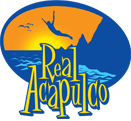It’s Official: Candidates for Governor
(Chilpancingo, 18 October, JG) The two candidates for governor have now officially made their applications to the Guerrero Elections Institute, which regulates state elections. Election day is January 30, 2011. The two opposing coalitions support traditional PRI candidates. In Guerrero, this is a curious situation, as the PRD, and not the PRI, has been dominant in local politics for several years.
The official PRI candidate is Manuel Añorve Baños, former mayor of Acapulco, who resigned to make himself available for the campaign. His coalition is called “Better Times for Guerrero” and consists of the PRI and the nearly invisible Green Party, believed by many to be in favor of environmental protection, but whose main function is to provide a coalition party for the PRI at election time. The tiny Panal, a one-issue party related to education, is the coalition’s third member.
The opposing group is headed by Ángel Aguirre Rivero, formerly a PRI member of the legislature, who seceded from the PRI, together with a small number of other dissidents. The main political parties supporting Aguirre are the PRD, the PAN and Convergencia. Given that the PAN and the PRD are on opposite ends of the policy spectrum (right to left), the glue that holds the coalition together is not ideology, but rather the common conviction that the PRI should not be permitted to take the statehouse over again after several years of being on the outside. (Before the PRD took over the office, the governor had always been a PRI loyalist, at least for the more than 60 years that the PRI controlled all politics in Mexico generally.)
Aguirre Rally
A rally of over 8,000 supporters of Aguirre over the weekend heard a speech in which Aguirre praised the “democratic principles and courage” of the dissident PRI party members who had seceded with him. Most of the coalition membership describes itself as “progressive,” meaning by that more liberal than the PAN or the PRI. This, in spite of the fact that the PAN is part of the group. Aguirre greeted the crowd with “revolutionary fervor” to the “most progressive forces in the State.” In an obvious gesture towards Marcelo Ebrard, the popular mayor of the Federal District in Mexico City, Aguirre advocated the adoption of “many of the successful programs of the government of the Federal District, which takes first place in the nation in combating social inequalities.” One of the more contentious of these policies is the authorization of gay marriage. Walton and Ortega, leaders of parties comprising the coalition, advised Aguirre. Walton said, “Make no promises you can’t keep,” in clear reference to Añorve’s campaign pledge to provide water to Acapulco. Some in the crowd responded with “No water!” Ortega added that Aguirre had to win over the political bosses, so as not to allow a return to the “repression, corruption and systematic violation of human rights” that he alleged had characterized previous PRI administrations.
Añorve Rally
In a rally of supporters at party headquarters in Chilpancingo, Manuel Añorve Baños officially received the mantel of the Partido Revolucionario Institucional (PRI) for the office of governor of the State of Guerrero. The advantage Añorve has with the PRI is the backing of the affluent national organization, and the support of governors, mayors and legislators from many other states. The main labor organization in Mexico, the CTM, also has thrown its support behind the candidate. Governors from Chihuahua, Coahuila, Oaxaca, Colima, and Campeche also were in attendance, to show their support.
Some of the political speeches referred to the cleft in the party caused by the departure of Ángel Aguirre. The party president, Efrén Leyva Acevedo, praised the loyal militancy of those who stayed firm, who “with passion and courage have shown that they can defend their political institutions.” He added, “No one should doubt that we have the best candidate for the office of governor. He has a cool head, a clear vision, and he practices the values of our political culture, like democracy, dialogue, tolerance, and [the right of] petition.”
Leyva Acevedo continued: "'Better Times for Guerrero' has a national profile, with an ideology, principles and programs, with militant supporters, sympathizers and areas that are well prepared, unlike the opposition.” As for the opponents, he called them “a local political force, thrown together around the personal ambitions of one man, built with different ‘ideological bricks’ and which [in a pun on the first name of the opponent] goes about looking for fallen angels like the one who betrayed the Lord, as it says in the Bible.”
Añorve’s own message to the assembly was described by journalists in attendance as “desangelado,” meaning without a lot of grace. But the word derives from the idea of “removing the angels” from the mix, yet another pun on the name of Añorve’s opponent. Añorve chose not to make an impassioned political speech, like those who went before. Instead, he focused in a workman-like way on the tasks at hand: He said that he does not “seek power for its own sake,” but rather “to form a government that will serve the people.” He recognized that the task is difficult in these times. “Our government must change direction, to serve and attend to the needs of the people.” Apparently Añorve believes this to be novel idea in Guerrero politics that has not been tried before. News reports indicate that before Añorve finished speaking the crowd started dispersing, to return to their respective towns.

